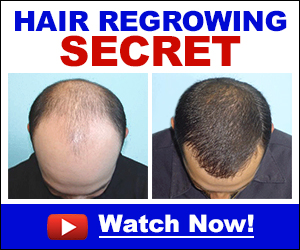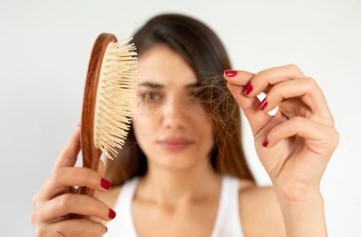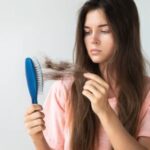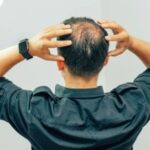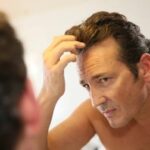Hair Regrowth Unlocking the Secrets of Hair Regrowth
Hair Regrowth, Hair is not just a physical feature; it’s a symbol of vitality, confidence, and personal identity. Unfortunately, hair loss is a common issue that affects people of all ages and genders.
The quest for regrowing hair has been a longstanding endeavor, and the good news is that there are numerous strategies and treatments available today that can promote hair regrowth.
In this comprehensive guide, we’ll explore the factors behind hair loss and various methods for hair regrowth, from natural remedies to medical interventions.
Understanding Hair Loss
Hair loss, also known as alopecia, can occur for various reasons, and it’s essential to understand the underlying causes before seeking a suitable solution. The most common types of hair loss include:
- Androgenetic Alopecia: This is the most prevalent form of hair loss, often referred to as male pattern baldness or female pattern baldness. It is hereditary and characterized by the progressive thinning of hair in a specific pattern.
- Telogen Effluvium: A temporary hair loss condition caused by severe stress, illness, or nutritional deficiencies, which disrupts the hair growth cycle, leading to hair shedding.
- Alopecia Areata: An autoimmune disorder where the body’s immune system mistakenly attacks hair follicles, resulting in hair loss in small, round patches.
- Traction Alopecia: Caused by constant tension and pulling on the hair, typically from tight hairstyles like braids or ponytails.
- Anagen Effluvium: Typically associated with chemotherapy or radiation therapy, where hair loss occurs during the growth phase of the hair cycle.
- Scarring Alopecia: Irreversible hair loss that results in the destruction of hair follicles due to inflammation, often caused by conditions like lupus or lichen planus.
Natural Remedies for Hair Regrowth
- Scalp Massage: Massaging the scalp with essential oils like lavender, rosemary, or jojoba oil can increase blood flow to the hair follicles and stimulate hair growth.
- Aloe Vera: Aloe vera gel has soothing properties and can help reduce scalp irritation and promote hair regrowth.
- Nutrient-Rich Diet: A balanced diet rich in vitamins and minerals, including biotin, zinc, and iron, can support healthy hair growth.
- Onion Juice: Applying onion juice to the scalp has shown promising results in some studies due to its sulfur content, which can improve hair regrowth.
- Ginseng: Ginseng supplements or topical applications can promote hair growth by stimulating hair follicles.
- Green Tea: Green tea contains antioxidants that may help prevent hair loss and promote hair regrowth when applied topically or consumed.
Medical Interventions for Hair Regrowth
- Folifort: Folifort is an over-the-counter topical medication that is FDA-approved to stimulate hair regrowth in both men and women.
- Finasteride: This prescription medication is primarily for men and helps slow down hair loss by reducing the effects of dihydrotestosterone (DHT) on hair follicles.
- Hair Transplant: Surgical procedures like follicular unit transplantation (FUT) and follicular unit extraction (FUE) can be effective in restoring hair in areas with significant hair loss.
- Platelet-Rich Plasma (PRP) Therapy: PRP involves injecting a concentration of the patient’s own platelets into the scalp to stimulate hair follicles.
- Low-Level Laser Therapy (LLLT): LLLT devices use low-level lasers or light-emitting diodes to stimulate hair follicles and promote hair growth.
- Prescription Shampoos and Topical Treatments: Some prescription shampoos and topical treatments, like ketoconazole or corticosteroids, can help manage hair loss conditions.
Lifestyle Changes for Hair Regrowth
- Stress Management: High-stress levels can contribute to hair loss, so incorporating stress-reduction techniques like meditation, yoga, or exercise can be beneficial.
- Avoiding Harmful Hair Practices: Limit the use of heat styling tools, avoid tight hairstyles that pull on the hair, and be gentle when brushing and washing your hair.
- Smoking and Alcohol Reduction: Smoking and excessive alcohol consumption have been linked to hair loss, so cutting back or quitting these habits can help promote hair regrowth.
- Proper Hair Care: Using the right products for your hair type, protecting your hair from sun and environmental damage, and maintaining good hygiene can all contribute to hair health.
Conclusion
Hair regrowth is a multifaceted journey that depends on various factors, including the type and cause of hair loss. While natural remedies can be effective for some individuals, others may require medical interventions or a combination of treatments.
The key is to consult with a healthcare professional or dermatologist to determine the best approach for your specific situation.
Remember that patience and consistency are essential when working toward hair regrowth, and with the right guidance and treatment plan, you can take steps toward regaining your confidence and a full head of hair.
